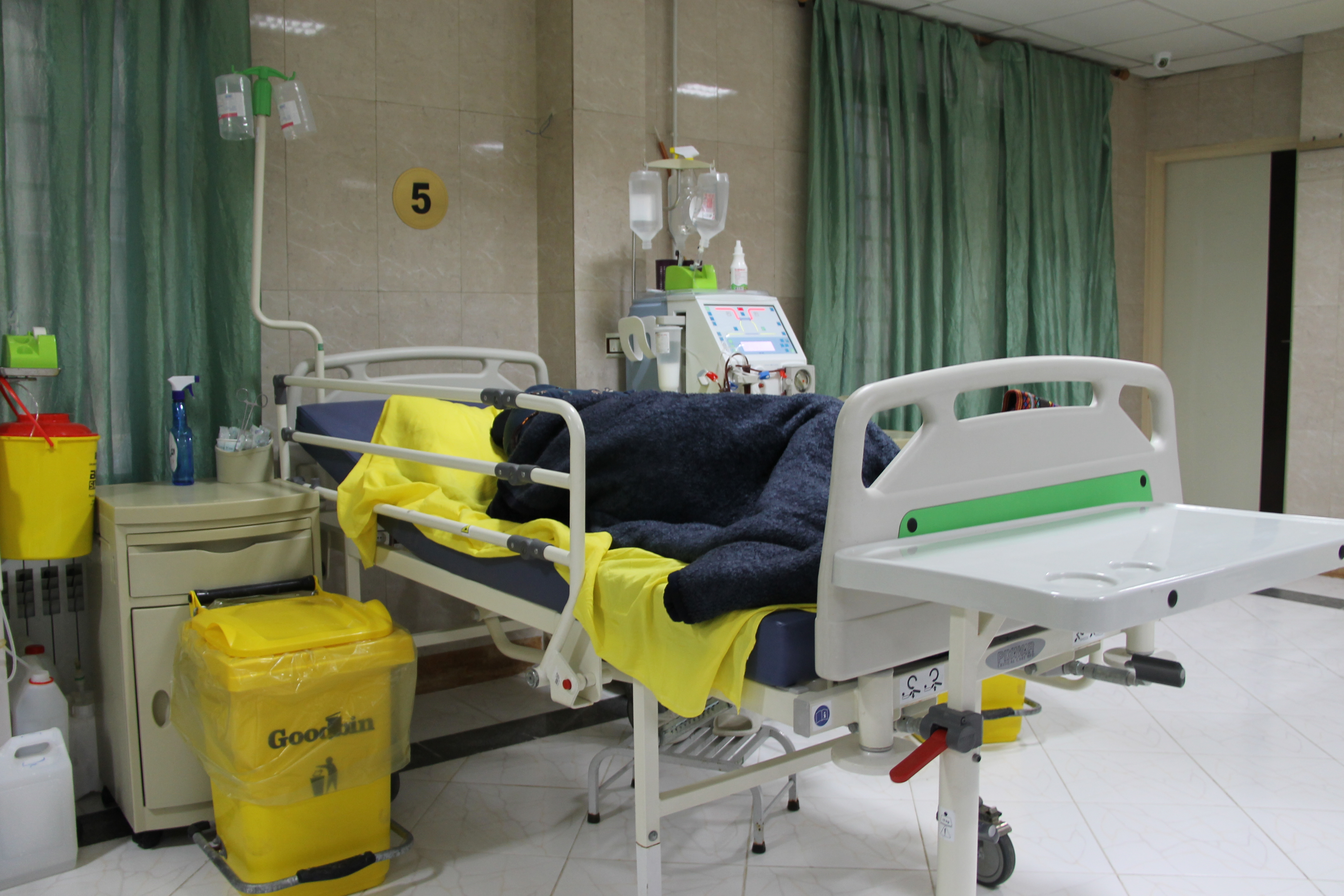
Vulnerable refugees receive free of charge, life saving treatments, such as dialysis under UPHI coverage.
It is hard to watch your child suffer from an illness; it is heartbreaking not being able to afford taking her to a doctor. Last winter, 16-year-old Morsal experienced severe infection after a series of untreated influenza. Six months later she lost her kidney.
“We knew better than to let our daughter suffer and not to take her to the doctors, but we couldn’t afford it. Infection finally ruined my daughter’s kidney. Her only kidney, as when we finally visited a doctor, we shockingly realized that she was born only with one kidney,” says Morsal’s father.
Morsal’s father, a 46-year-old Afghan refugee, works irregularly in construction sites. He lives in Varamin, 57 kilometers south east of Tehran city with his wife, two daughters (1.5 and 16), two sons (10 and 14) and his old mother.
Now Morsal was in need of dialysis treatment, high cost of which was not manageable for the family. Morsal’s father is the sole breadwinner and as a seasonal worker, he can barely make the ends meet. “We spent all our saving, we had to sell some stuff and eventually there was no other choice rather than reducing her dialysis sessions to two days a week while she needed three,” Morsal’s father breaks into tears, “I was losing my young daughter, she was suffering in front of my eyes.”
After he approached UNHCR Field Office Tehran to request assistance for his daughter’s medical expenses, his name and contacts were registered and he received a call when enrolment for Universal Public Health Insurance for Refugees (UPHI) started.
UPHI also known as Salamat Health Insurance, covers all hospitalisation costs for refugees, similar to that of Iranian nationals. Based on an agreement between UNHCR, the Bureau for Aliens and Foreign Immigrants Affairs (BAFIA) of the Ministry of Interior, the Ministry of Health, and the Iran Health Insurance Organisation (Salamat), refugees can receive an insurance package with a reasonable premium. However special disease cases such as Morsal’s don’t even pay the premium.
“Inclusion of refugees in this kind of health insurance scheme is unprecedented in a country of first asylum dealing with such a large number of refugees,” says Sivanka Dhanapala, the UNHCR representative in Iran. “It is indeed exemplary not only regionally but also globally,” adds Dhanapala.
For over 2000 refugees with special diseases that need regular and continuous medical support, Salamat health insurance is vital; especially given they pay no premium to benefit from the services. Out of approximately one million registered refugees living in Iran, 300,000 are also listed as vulnerable and only pay 9.12 USD to receive health coverage for six months. The rest of the population pay 36.66 USD for six months, a price that can save a family from financial crisis when it comes to hospitalisation bills.
“After registration, Morsal was provided with an insurance booklet and now she receives the required dialysis three times a week in a medical facility close to our home in Varamin. It is winter and I earn even less than usual but I am not worried so much. We eat as we earn but our main concern was Morsal’s treatment costs”
“She feels better now… so we all feel better,” says Morsal’s father with a big sigh of relief.
Share on Facebook Share on Twitter